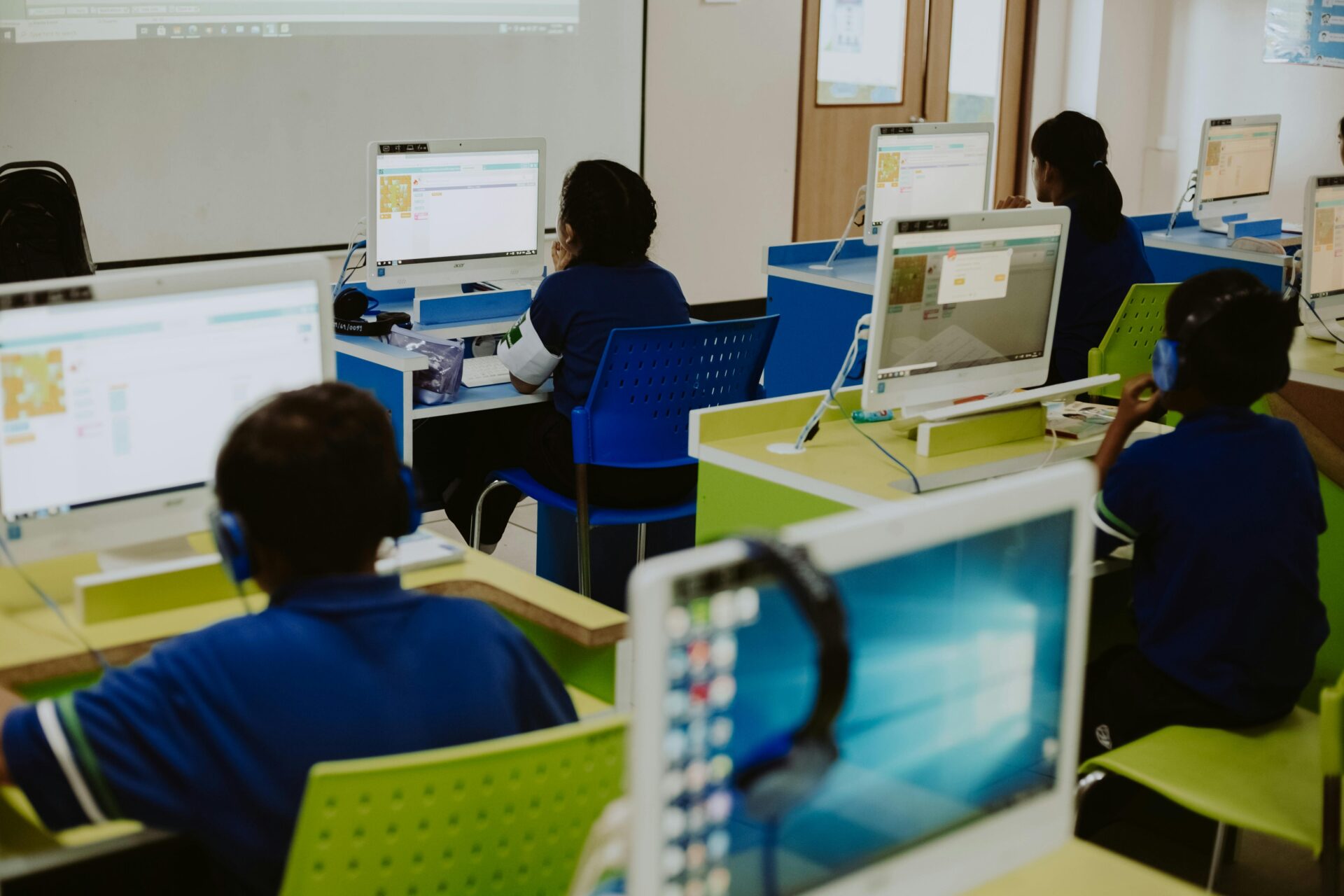Research isn’t just for college students or scientists in labs; it’s something you can start right now, even while you’re still in high school. Learning how to do research as a high school student gives you a serious head start in developing critical thinking, problem-solving, and communication skills. Whether you’re working on a school project or exploring a personal interest, conducting research helps you explore ideas deeply and ask better questions. It may seem intimidating at first, but with the proper guidance, tools, and motivation, you’ll realize that research is not only manageable, it’s exciting and rewarding.
As you begin your journey into research, you’ll quickly discover that it’s less about memorizing facts and more about learning how to think independently. The process teaches you how to gather evidence, evaluate information critically, and form your conclusions. Whether you’re aiming to work with a professor, pursue a publication, enroll in online research programmes, or simply dive into a topic you love, research empowers you to become a more engaged and productive learner. This guide will walk you through everything you need to know, from choosing a topic to publishing your findings, so you can take on research with confidence and purpose.
Getting Started With Research as a High Schooler
Starting your first research project might feel overwhelming, but it becomes easier once you break it into manageable steps. The best way to begin is by identifying a topic you’re genuinely curious about. When you care about a subject, it’s much easier to stay motivated and ask insightful questions. Start by thinking about your favorite class, a problem you’ve noticed in your community, or a global issue you want to understand better. Your topic doesn’t have to be groundbreaking; it just needs to be something you’re willing to explore with depth and care. This early step sets the foundation for a meaningful and enjoyable research journey.
Once you’ve settled on a topic, the next step is developing a research question. A strong question should be specific enough to investigate thoroughly but broad enough to explore different angles. You might begin with something simple, like “How does climate change affect local ecosystems?” and refine it as you learn more. As your understanding grows, you’ll naturally narrow or expand your focus to align with your goals. Participating in group online research programs for high school students can also help you develop sharper questions and gain early exposure to academic research environments. Writing down your main question and a few sub-questions enables you to stay organized and focused as you search for sources. It also gives your project direction and clarity from the start.
You might be wondering if high schoolers can do independent research, and the answer is yes. Many students complete impressive projects outside of their classes. With guidance from teachers, online mentors, or university outreach programs, you can work on your schedule and develop your skills at your own pace. Research doesn’t have to be tied to grades or deadlines. It can be something you pursue on your own, fueled by curiosity and passion. Independent work teaches self-discipline and can even lead to publications, competitions, or scholarships.
Choosing and Refining Your Research Topic
Picking the right research topic is one of the most critical parts of the process. You want a topic that interests you, but it also needs to be researchable. That means you can find enough reliable information to build your argument or findings. A good starting point is to brainstorm themes from your classes or current events that stand out to you. You can also talk to teachers or mentors who can help guide your ideas into something more specific and actionable. Choosing something too broad will make it hard to focus, while something too narrow might limit your sources. Aim for a balance that allows for both exploration and depth.
Once you’ve chosen a general theme, do a bit of preliminary reading to understand what’s already been said about the topic. This stage is called a “literature review,” and it helps you learn what questions still need to be answered. From here, you can shape your research question into something original. For example, if you’re interested in fast fashion, you might ask, “What role does social media play in increasing fast fashion consumption among teenagers?” This version takes a broad topic and narrows it down into a focused, testable idea. That level of precision makes your work stronger and more interesting. You can even search for research project ideas for high school students and see if anything sparks your curiosity.
Sometimes students want to work with a professor or expert in a particular field. If that’s you, don’t hesitate to reach out to local universities or research institutions. A well-written email expressing your interest in their work and a request to learn from them can open exciting doors. Be clear about what you hope to learn and how much time you can commit. Even if you don’t get a response from everyone, reaching out builds confidence. And when you do find someone willing to mentor you, that experience can become one of the most impactful parts of your academic journey.
Finding Reliable Sources and Staying Organized
Once you’ve chosen a topic, the next step is to gather trustworthy information. Start by checking your school library’s access to academic databases like JSTOR or EBSCOhost. These platforms offer peer-reviewed journals and articles you can cite confidently. If you’re unsure how to use these tools, don’t hesitate to ask a teacher or librarian for help. Google Scholar is another great option for locating scholarly material. Just be sure to evaluate every source carefully, look at the author’s background, the publication date, and whether the article relies on facts or opinions.
Staying organized from the start can save you time and stress later. Create a digital folder for your project and collect articles, highlight key points, and write summaries. Tools like Notion, Google Docs, or OneNote can help you build an outline and track your progress. Clearly label all your notes with source information so you can cite them properly. This way, when it’s time to write, you’ll already have the foundation in place. Good note-taking doesn’t just make the process easier; it also strengthens your thinking and research skills.
Immerse Education reinforces these essential habits through its research-focused programs. Students are guided through academic methods used at top universities, including how to evaluate sources, organize ideas, and build compelling arguments. By practicing these skills early, you gain a head start on the kind of research and writing expected in higher education. And if you’re wondering how to do research as a high school student with limited access to resources, combining digital libraries with strong organization tools is one of the most effective strategies. It keeps your work credible, focused, and ready for success.
Sharing, Presenting, and Publishing Your Research
After finishing your research project, you should share it beyond the classroom. Presenting your work can be a rewarding way to showcase your effort and gain valuable feedback. Some schools offer research fairs, capstone projects, or classroom presentations where you can explain your process and findings. Practicing your speaking skills builds confidence and helps you communicate complex ideas clearly. Consider using slides or visuals to support your key points. A strong presentation helps you learn how to engage an audience, a skill you’ll use throughout your academic life.
If you’re looking to take your project further, explore opportunities to publish your work. There are several online platforms and academic journals open to submissions from high school students. Sites like the Journal of Emerging Investigators or the Concord Review accept student papers in various disciplines. Before submitting, double-check formatting rules and word limits to improve your chances of being accepted. Publishing your research gives you credibility, enhances your college applications, and allows others to learn from your work. Even if you’re not received the first time, the experience of applying is valuable on its own.
You might also consider working with a professor or expert who can co-author your project or guide you through a more advanced submission. This is where mentorship can really elevate your research journey. If you’re unsure where to start, ask your teachers or contact nearby universities about summer programs for high school students or academic outreach. Remember, this doesn’t need to be competitive; it’s about growing as a student and learning what academic research really involves. With practice and persistence, you can build a research portfolio that showcases your curiosity, commitment, and productivity.
Final Thoughts
Learning how to do research as a high school student is more than just an academic exercise; it’s a chance to develop curiosity, discipline, and confidence that will serve you for years. As you grow more comfortable asking questions, analyzing information, and presenting ideas, you’ll gain a deep sense of empowerment. Whether you choose to pursue science, history, literature, or another field, the ability to conduct thoughtful research will make you a stronger student and thinker.
At Immerse Education, we believe in giving ambitious students the tools and guidance they need to thrive. Our immersive summer programs are designed to support your academic growth and passion for learning. If you’re ready to take your research skills to the next level, you can always reach out to our expert advisors at hello@immerse.education or call us at +44(0) 20 8123 6988 for a free consultation, or see our summer school program catalogue to see what fits you the most.

























